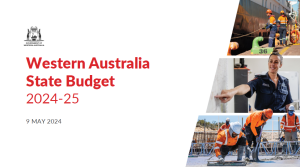End Mandatory Income Management
WACOSS is strongly supportive of the move to abolish the Cashless Debit Card arrangements. It is abundantly clear that there is no robust evidence to demonstrate that the Cashless Debit Card is at all a successful approach and, instead, it is actively harmful for the communities in which it has been introduced. This is a stigmatising and discriminatory policy response that seeks to restrict and control the behaviour of individuals, rather than addressing the systemic and structural causes of social issues and challenges in our communities.
Analysis conducted by the Australian National Audit Office (ANAO) has consistently demonstrated that there is no evidence that this system has been able to meet the objectives for which it has been established.[1] As has also been determined by the ANAO, stakeholders have consistently raised concerns regarding the significant shortcomings and limitations of the evaluations that have been undertaken for the Cashless Debit Card Trials as commissioned by the Department of Social Services. Concerningly, these substandard evaluations were continually relied upon by the previous Commonwealth Government to support the ongoing extension of the Cashless Debit Card arrangements.
Attempting to address complex social issues with a blunt instrument like the Cashless Debit Card is simply misguided and fails to meaningfully target the causes of the issues being experienced in the regions the card has been introduced. As stated by Dr Janet Hunt from the Centre for Aboriginal Economic Policy Research, the real underlying problem for those regions targeted by the trials is “insufficient economic activity and a consequent dearth of jobs.”[2]
WACOSS considers that this Bill should remove all mandatory income management arrangements, including where people are compulsorily placed on measures such as the Basics Card. As such, we are concerned that the current legislation enables the Minister to determine a class or classes of former Cashless Debit Card program participants who become subject to mandatory income management.
Mandatory income management inevitably disempowers participants. It is crucial that people are the decision-makers in their own lives, and that is in no way diminished by a person requiring social security payments for any period of time. It is our considered assessment that the weight of evidence on income management models clearly shows that the loss of self-control and of the ability to make timely decisions to manage limited finance for individuals and households living near or below the poverty line is a barrier to achieving employment outcomes and maintaining family wellbeing. As has rightly been identified in respect of the Cashless Debit Card, mandatory income management arrangements disproportionately impact and restrict Aboriginal communities.
Many people who are reliant on income support are in fact exceptionally good at budgeting to balance their financial needs and obligations against their meagre income on a day-by-day and week-by-week basis, and arbitrary decisions to interfere in and over-ride their household budgets can result in unnecessary financial hardship and distress. Effective support should start from the position of understanding current household budgetary arrangements and the reasons behind ongoing expenditure arrangements.
An approach that empowers and respects people as the decision-makers in their lives is needed to design a system that supports individuals and communities, rather than the punitive and paternalistic approach embodied in the cashless debit card.
References
[1] Australian National Audit Office (2018) Implementation and Performance of the Cashless Debit Card Trial Performance Audit Report and (2022) Implementation and Performance of the Cashless Debit Card Trial – Follow on Performance Audit Report
[2] Dr Janet Hunt (2020) ‘Evaluating the Cashless Debit Card: How will it solve poverty and unemployment’, CAEPR Topical Issue 2/2020, Centre for Aboriginal Economic Policy and Research, Australian National University




